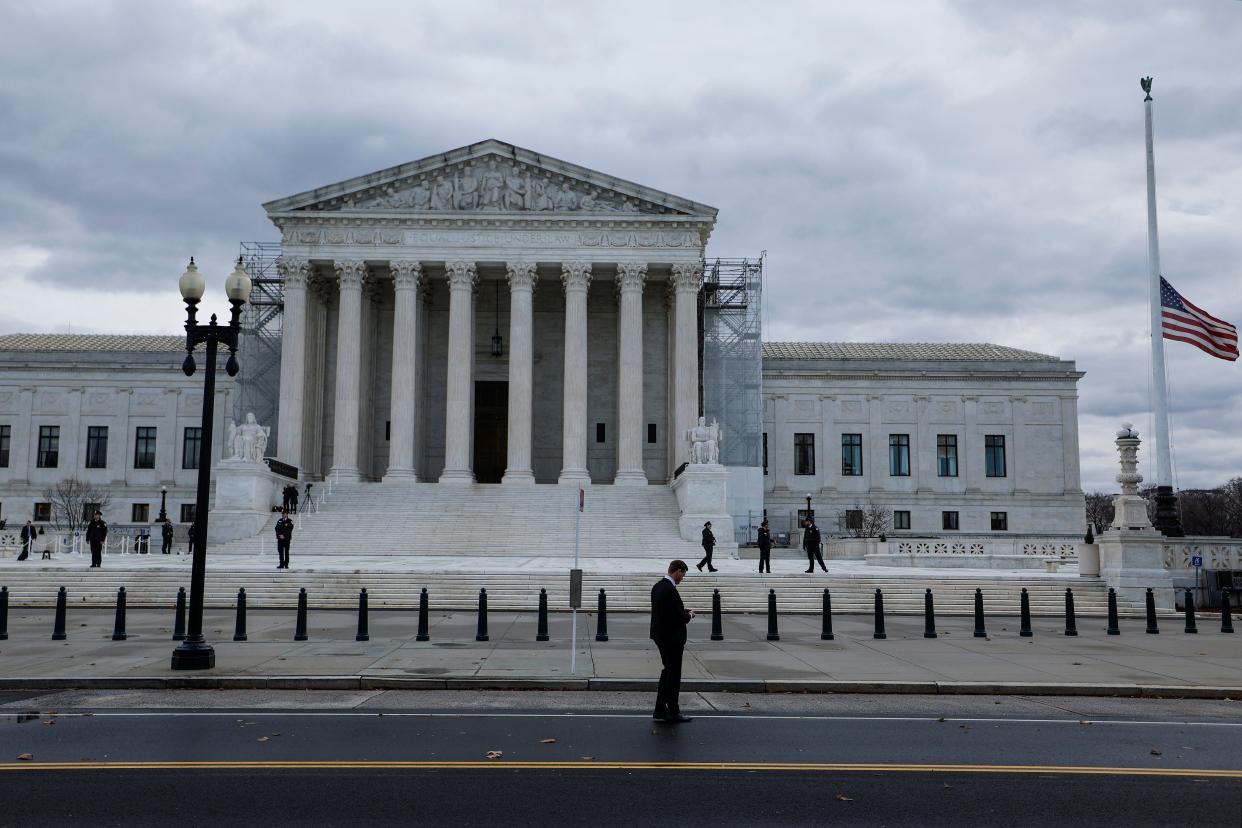Opinion: The Supreme Court takes up Texas abuses of government power
Year after year public officials tell Texans they believe in limited government and protecting constitutional rights. In practice the opposite is true. Two Texas cases before the U.S. Supreme Court highlight the disconnect.
On Tuesday, the high court heard heard DeVillier v. Texas. Richie DeVillier and his family have tended a cattle ranch near Beaumont for four generations. They never had trouble with flooding. But when the Texas Department of Transportation raised Interstate 10 and installed a concrete dam down the median to keep the south lanes open during heavy rain, things changed.
DeVillier’s land became a large lake. Homes were flooded. Families were displaced. Cows and horses died. And equipment was destroyed.

That is a taking protected by the Fifth Amendment, which requires the government to pay just compensation. Texas agrees, but it argues that states get to choose whether to comply. According to Texas, unless Congress passes a law authorizing property owners to sue states for just compensation, property owners cannot force states to do so.
The Supreme Court will decide whether the Fifth Amendment means what it plainly says. A win for DeVillier would be a win for all Texans and all property owners nationwide.
Sylvia Gonzalez is also fighting for all Texans in her case against Castle Hills, an enclave city surrounded by San Antonio. Later in 2024 the Supreme Court will decide whether government officials violated Gonzalez’s First Amendment rights. After running for City Council and winning on a platform calling for the removal of the city manager, the mayor and police chief used bogus charges to accuse Gonzalez of mishandling her own citizen petition during a City Council meeting.
She did nothing wrong, but they threw her in jail and forced her to sit in a cell for several hours. After the charges were thrown out, Gonzalez fought back in federal court. Both Devillier and Gonzalez are represented by my public interest law firm, the Institute for Justice.
Other examples of abuse abound across Texas.
A SWAT team stormed Vicki Baker’s home in McKinney north of Dallas after a fugitive barricaded himself inside. When Baker requested compensation, the city refused to pay.
Oz Sepulveda purchased a building that formerly housed an auto machine shop in Pasadena outside Houston. But when he tried to open a one-man auto mechanic shop there instead, the city demanded 28 additional parking spots—an unreasonable and cost-prohibitive demand.
Ron Hines, a retired licensed veterinarian, ran into trouble in Brownsville when he tried to offer online advice for pet owners. No one complained, but a Texas licensing board shut him down anyway because he did not physically examine the animals.
Ameal Woods faced an ordeal when he drove to Houston to buy used trucking equipment. Harris County deputies stopped him, seized his life savings, and sent him on his way. Woods was not arrested, but the government is trying to keep his cash anyway using civil forfeiture, a moneymaking scheme that does not require criminal charges.
None of these people did anything wrong. But Texas officials punished them anyway.
The list goes on, involving everyone from a citizen journalist arrested for filming a police encounter, a truck owner who challenged Bexar County’s stop-first, justify-later policing during traffic stops, and an aspiring nurse who cannot realize her career dream due to a tainted two-decade old conviction.
The repeated incantations by Texas officials claiming respect for individual rights must be weighed against their conduct. Talk is cheap. People like DeVillier and Gonzalez need action.
Panju is a managing attorney with the Institute for Justice and lives in Austin.
This article originally appeared on Austin American-Statesman: Opinion: The Supreme Court takes up Texas abuses of government power
